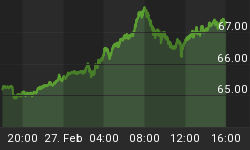Do we really want Google to have access to our medical records? Have we been lulled to sleep by big data collectors who make things uber convenient for us--until they don’t? “While tech giants have dominated the news over the last few years for repeatedly violating consumers’ privacy, Google managed to fly under the radar as it pulled off what is likely the greatest heist of consumer medical records in history”...
This thriller-movie-style statement actually comes from a potential class-action lawsuit accusing Google of inappropriately accessing the sensitive medical records hundreds of thousands of hospital patients.
The lawsuit isn’t class-action yet, but it could easily snowball into such. It was originally launched by a patient admitted to the Chicago University Medical Center in 2015--Matt Dinerstein, who is listed as the co-defendant. But once word makes its rounds, it could also attract some 200,000 others whose medical data is in question here.
The core of the lawsuit traces the story back to 2017, when Google decided to take a major leap into the healthcare space by getting its hands on the Electronic Health Record (EHR) of nearly every patient from the University of Chicago Medical Center from 2009 to 2016.
This is where we have to question the altruistic values of Artificial Intelligence (AI) to help us advance medicine, as opposed to gold-digging for data.
Google’s partnership with the University of Chicago uses AI to predict medical events. That sounds great. That means major advancements that can help medical providers better determine how long a patient might be hospitalized, or even whether their health is deteriorating.
For hospitals, its predictive promises were significant, with software using data from medical records to predict readmissions, prolonged lengths of stay, discharge diagnoses, and early deaths--among other things.
The University was given assurances that Google would keep patient data “private and secure”, and that use of that data would strictly adhere to HIPAA privacy rules. Under HIPAA, medical providers are allowed to share data with others for research purposes, but they aren’t allowed to identify the patients.
Related: Another Round Of Bankruptcies Looms For U.S. Oil Industry The reality was much different, according to the lawsuit, which alleges that the records Google accessed were not sufficiently anonymized and put patient privacy at grave risk.
Dinerstein further alleges that the hospital isn’t necessarily innocent in all of this, calling their claims "misleading" and accusing the university of consumer fraud and fraudulent business practices, because it didn't receive express consent from patients to share their data.
They're also accusing Google of unjust enrichment.
For now, Google seems safe. The lawsuit has failed to include evidence that Google misused the information the university provided.
Still, Google's access to health records has raised privacy concerns as early as 2016, when a data-sharing agreement between Google and the UK's state-run National Health Service revealed that data on 1.6 million patients in London hospitals was passed to Google-owned AI company DeepMind as part of a research program.
The fact is, the healthcare industry is a trillion-dollar per year goldmine, and it’s all about who controls the data.
Nor is Google the only tech giant that’s dying to get is hands on this.
Amazon, Apple and Microsoft have all been investing heavily in healthcare for the past decade in order to gain a foothold in the industry. Biotechnology and software sub-sectors have become a recent area of focus for big tech, and account for the majority of recent investments.
US health spending reached $3.6 trillion in 2018. It’s expected to increase 5.5 percent annually on average through 2026.
Related: The Problem With Modern Monetary Theory
Considering that the healthcare industry is also seen, right now, a horribly inefficient animal, there’s potentially a ton of money to be made on innovation here, and that means giving up our private data.
Last year, even ride-sharing company Uber got into this, launching Uber Health, which lets health providers book rides for patients or caregivers.
And while it may seem that consumers aren’t bothered much by the pending privacy apocalypse, consistently giving their data out to anyone who asks for it, a recent survey by Rock Health suggests differently. The survey shows that only 11 percent of people were willing to share their health data with a tech company.
That would be a blow to the grand plans of the tech industry as it courts healthcare. As it turns out, people trust the federal government, insurers and even big pharma more than they do tech companies.
The recent lawsuit won’t help matters.
By Michael Kern for Safehaven.com
More Top Reads From Safehaven.com:
















